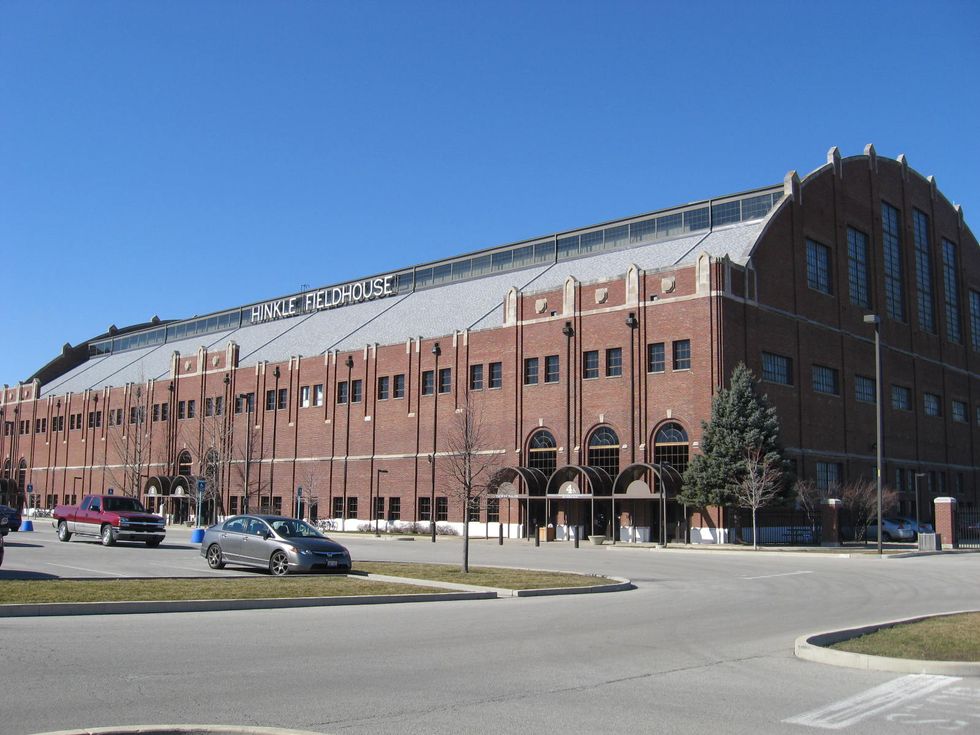Indy Star's recent article exposing Butler University for its poor response to a student's rape shows just how much work is still yet to be done when it comes to ending sexual assault. The #MeToo movement has sparked a national conversation, and more and more perpetrators are finally being exposed for years of abuse in Hollywood and beyond. Larry Nassar recently got the sentence he deserved -- a sentence refreshingly just when compared to last year's horrendously light Brock Turner sentence and others like it.
However, although battles are being won, the fight is still far from over. This has been painfully proven in the release of Indy Star's Monday article telling the story of a betrayed student, let down by her university at her most vulnerable state. The article recounts the story of a Butler University student's nightmarish 2016 assault and then focuses on the student's lingering pain and anger regarding the lack of support she needed in the midst of such a terrible crisis. She was not told how to proceed and, concerningly, wasn't officially advised until after the crucial 72-hour window in which evidence can be collected. Without the collection of evidence within this window, the woman had a slim chance of ever winning a case against the accused rapist, and therefore could also not ensure the same abuse wouldn't occur to another student.
It wasn't as if the university didn't know this event had happened; the woman told seven professors in all, leading her to report the rape. The Title IX Coordinator was notified soon afterwards.
Although the university was most likely not purposefully planning to sweep her case under the rug in order to preserve the "Butler Way" and "Community of Care" reputation like some bad conspiracy theory, their alleged actions (or lack of) cannot be ignored. No one in the midst of trauma should be expected to have the knowledge or drive to navigate the complicated legal system. Butler University should have done more in this situation to aid their own student in getting the support and justice she deserves. A lack of action and continued silence only aid the abusers.
Another perhaps most troubling detail of this article was that the rapist had been accused of assault twice (and possibly another time after that -- the details are unclear on whether it was reported or not) before being expelled -- and these numbers were only the known accounts. More survivors of the same rapist could still be battling assault on their own. How does this happen? Three times is not a coincidence, and I'm more than concerned as to how Butler allowed the rapist so many chances at the expense of other students.
Even when giving Butler the benefit of the doubt in presuming there must be some details we do not know, the article paints a bleak picture that unfortunately many (I would argue the majority of) Butler students know is far from the truth. The student body knows the rumors, have heard the stories, and have been there to share the pain their friends and classmates have endured. The IndyStar article gave voice to the fears and personal traumatic experiences existing in the shadow of the university's prestigious, tight-knit exterior. When our university should have been there to lead the charge against rape on campus, it fell silent. Action on the university's part was severely lacking, and while it is too late to bring justice to the survivor, change must be made so it does not happen again.
While I'm ashamed of the past week's revelations, I'm still grateful Butler is as safe as it usually appears. I generally feel safe on campus and have witnessed numerous instances of students stepping in to protect their peers in potentially dangerous situations, real life examples that the Community of Care is often more than just a cheesy recruitment slogan. I believe the high number of annual reported rapes is generally a good sign, one that shows we foster an open, safe environment for students to share their trauma with people who will help them report it. The faculty and staff at Butler University exceeded all my expectations in my three years here. They are not just committed to their classes, but to their individual students. Their care and support is obvious, and it is what makes Butler University such a special place. Butler has made plenty of mistakes, but it has triumphed, too.
Butler University should be held accountable for this instance, but Butler University is not alone. Colleges globally need to do more to protect their students and actively stand up for survivors. Butler University may be in the spotlight, but it is the target of criticism that many national universities deserve. The abuse that's making national headlines is not quarantined into any specific city or industry. It is plaguing the entire world, and we're finally beginning to expose the disease.
Rapists and abusers are finally being called out in media, but we
haven't even reached the tip of the iceberg in preventing further abuse from
happening. In day to day life -- at work, in college, at a bar, or even walking down the street -- we can all do our part in supporting victims of all genders and backgrounds get the help they need and speak up. It's not enough to just not choose to perform inappropriate actions -- it's the responsibility of every single person to not be a bystander. We've made progress, but if Butler University's lack of initiative shows
us anything, it's that there's still a long road ahead of us. Do what Butler did not, and take action.
















































